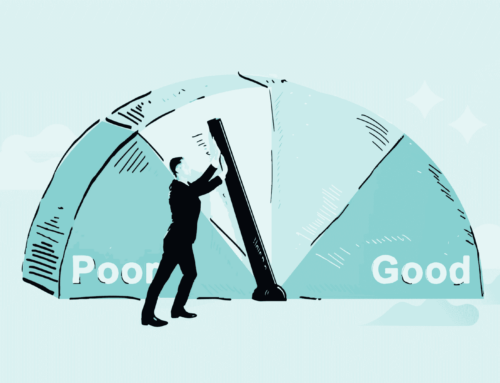At Marble financial we’re proud to have helped thousands of Canadians improve their credit score by exiting them out of their consumer proposal. When it comes to further improving your credit score, a great place to start is to learn about the factors that affect it. While the exact formula that the credit bureaus use to calculate a consumer’s credit score is not available to consumers, we do know that five main factors, each with their own weight, are considered in the calculation.
The Five Factors That Affect Your Credit Score
1- Payment History (35%)
When it comes to the calculation of your credit score, payments are king. If you want to have a healthy credit score and maintain it, making all of your payments on time is crucial. This means credit card payments, loan payments (personal, auto, etc.), mortgage payments, and sometimes utility and cellphone contract payments. While one missed or late payment won’t plummet your credit score, consistently late payments will have a negative affect.
How Payments Can Help You Improve Your Credit Score
If you’re looking to improve your credit score, making your payments on time should be one of your top goals each month. But, what if you’re having a really hard time remembering?
Consider putting your finances on autopilot, so to speak. Set up all your loan payments so they are automatically debited from your account each month. You can do the same with your credit cards by setting up an automatic payment for your minimum payment. Just keep in mind, this will help prevent any late fees being incurred but you’ll need to remember to pay off the remaining balance to avoid interest charges.
What about consumers who have no credit history and need to work their way up? A credit card is often the first form of credit most consumers used to improve credit. You can ask at your bank for an application for one of the credit cards they offer. But, if you can’t get approved for a typical credit card, a secured credit card could be a great option. You’ll need to provide a deposit that acts as security but you can use it the same way as a typical credit card and your payments will be reported to the credit bureaus which will help improve your credit history.
2 – How Much Debt You Have (30%)
Next, the amount of debt you carry across all your credit accounts. Some debt is ok as using credit cards and taking out loans is how you improve credit. But, it’s all about balance when it comes to the health of your credit score. Credit bureaus take into consideration three key components related to your debt level. How much debt you have overall, this means all of your credit and loan accounts. Your credit utilization ratio, how much debt you carry on all your credit cards compared to your total available limit. And finally, how much you still owe on any loans compared to their original balances.
How Managing Your Debt Levels Can Help Your Improve Your Credit Score
When it comes to improving your credit score, managing your credit utilization ratio is a very important and often overlooked step. It’s a good habit to make sure you don’t have a credit utilization ratio over 30%, this means you should only use up 30% or less of your total available credit card limit.
If you like charging the majority of your bills and monthly expenses to collect points and rewards from your credit card, consider asking for a limit increase to make sure you’re following the 30% rule. You can also pay off your credit card twice a month to keep your utilization ratio low.
3 – Credit Usage History (15%)
The third factor that affects the calculation of your credit score, is the length of your credit history or how long you’ve been an active credit user. Simply put, the longer you’ve been responsibly using credit, the healthier your credit score will be.
How Your Credit History Can Help You Improve Your Credit Score
Your credit history is built over time through responsible credit habits, this means you can’t fast track it to help improve your credit score. But, you can make sure you don’t unnecessarily shorten it by closing inactive credit accounts. Even if you no longer use a certain account, for example, your first basic credit card, don’t cancel it. You want that credit card and its history to remain on your credit report.
4 – Credit Account Variety (10%)
All credit accounts fall into two types, either installment or revolving. A credit card is an example of a revolving credit account, something that most adult credit users have. And, a car loan is an example of an installment account. If you have both types of accounts, your credit score will thank you.
How to Add Credit Variety to Help Improve Your Credit Score
Since this factor only accounts for 10% of your credit score, it’s not typically worth taking on more debt you can’t afford just to diversify the types of accounts you have. But, with that being said, consumers who are really looking to boost their credit scores, will benefit from diversifying the types of credit they use.
5 – Credit Inquiries (10%)
Every time you apply for a credit product, like a credit card or a loan, the service provider will pull your credit, resulting in a hard inquiry showing up on your credit report. Each inquiry will cause your score to drop a few points. While a few lost points won’t hurt you in the long run, multiple inquiries within a short period of time will negatively affect your credit score and potentially illustrate to a potential lender that you are recklessly applying for new credit.
Feeling like credit score pro? Let us know what you thought of this article by sharing it online or emailing us at [email protected]
Author: Caitlin Wood – Loans Canada






